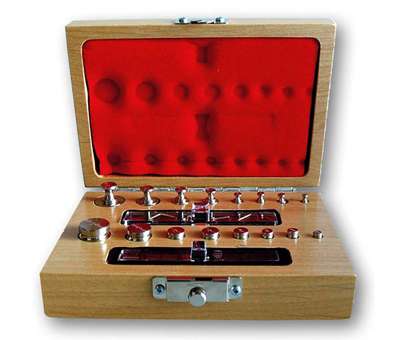Precautions When Using and Storing Weights
When working with weights, accuracy is key. However, many people underestimate how delicate weights really are. If they are mistreated or stored improperly, their mass changes. The little scratch or amount of rust can affect their mass in a big way. Here are a few tips for properly using and storing weights to ensure the most accurate results.
Using Weights
- Use Gloves - Bare hands should never touch weights. Oil from the skin and salt from sweat will stick to the weight eventually resulting in rust and causing a change in mass.
- Use Wooden Tools - To prevent scratching the weight, it is important to use wooden tweezers and tools. Another option is to use tweezers with rubber covering the tips.
- Do Not Allow Weights to Slip - If weights slip on the balance pans, the base begins to rub and wear down decreasing the mass. The same holds true if the weight bumps or slams against a hard surface. The weight can chip or scratch.
- Watch Your Temperature - When weights are used for high-resolution balance calibration, special attention should be paid to the temperature of the balance installation and the storage area. If the temperatures are different, convection will occur during measurement change the values. In the event of different temperatures, weight should be moved to the balance installation room at least 2 hours before use to allow them to acclimate to the new temperature.
Storing Weights
Weights must be stored in a room that is moisture and dust free. The room should also be free of all corrosive gases which can cause the weights to rust. Placing weights inside a desiccator containing desiccant and storing them in a metal locker is highly recommended.
Contact us today for more information about weights to learn about our large variety of digital scales.

